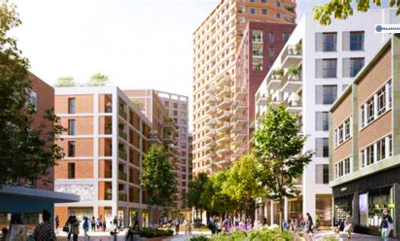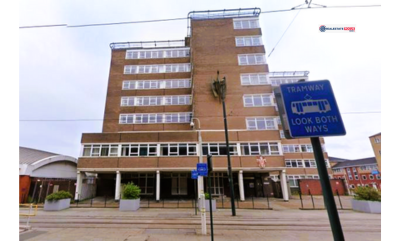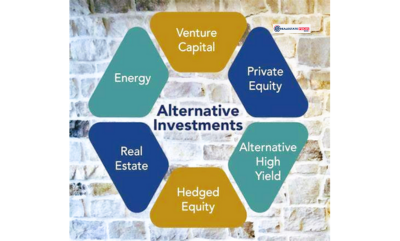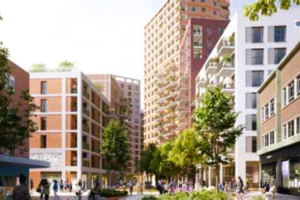

Trump’s War on ‘Wokeness’ and Its Potential Impact on Housing Regulations and Real Estate
Former President Donald Trump’s stance on “wokeness” has become a significant part of his political agenda. His efforts to challenge what he considers to be excessive political correctness could affect various sectors of American life, including housing and real estate. Central to Trump’s approach is the pushback against policies tied to diversity, equity, and inclusion (DEI), which he believes have created an overemphasis on political correctness at the expense of economic priorities.
This ideological battle is gaining traction, and its influence on housing regulations and real estate could be profound. A major area of impact is likely to be the policies governing real estate development.
Many cities and states have adopted DEI-based guidelines, which often require developers to incorporate elements that promote diversity, equal opportunity, and sustainability into their projects. Trump’s push to reduce what he calls “woke” policies may lead to fewer regulatory demands for these elements, potentially shifting focus back to economic considerations, such as affordability and market demand.
This shift could change the landscape of real estate development. Developers who previously had to meet DEI standards may now be more inclined to prioritize cost-effective projects that appeal to a broader range of buyers and renters.
It may also influence which neighborhoods or regions attract development projects. Areas that are more focused on economic growth and less on social policy could see an increase in construction, while places with stricter DEI requirements might experience a slowdown in development.
The role of government in housing could also change. Trump’s political movement has emphasized reducing government intervention and deregulating industries. If this shift extends to the housing sector, local governments could be under pressure to loosen building restrictions, zoning laws, or rent control policies.
This would allow for more construction to take place without as many regulatory barriers, potentially leading to a greater supply of affordable housing, especially in markets that have been stifled by strict DEI-focused rules.
Some experts suggest that Trump’s focus on deregulation could lead to lower housing costs. If regulations are eased, developers might be able to build more homes and apartments more quickly and at a lower cost. This could reduce the supply-demand imbalance that has driven up housing prices in many regions, especially in cities with high regulatory burdens.
At the same time, other experts argue that Trump’s anti-“woke” stance could lead to market instability. If housing projects become more focused on profitability rather than inclusive design, some communities could be left behind.
Areas that have benefitted from policies promoting affordable housing and diversity may face difficulties attracting investment. If these policies are rolled back, the result could be a widening gap between areas that see investment and those that do not, potentially leading to greater income inequality and housing disparities.
Another potential consequence of this regulatory shift is the change in the way housing is financed. Federal and state-level funding programs that support affordable housing or promote DEI could be impacted. If Trump’s push succeeds in changing these funding models, it might reduce the financial assistance available to developers building in lower-income or minority-dominated communities.
This could lead to fewer housing options for vulnerable populations and a slowdown in urban revitalization projects. Trump’s influence on housing regulations is also likely to spark debates about the role of government in shaping the real estate market.
As the debate over regulation intensifies, the housing market may see a divide between developers and homeowners who favor deregulation and those who believe that regulations promoting diversity and inclusion are necessary for creating equitable communities.
Real estate investors will also be closely watching these developments. Changes in regulations could directly affect the financial viability of real estate projects, especially in areas where DEI policies have been a major part of the development landscape.
Investors who rely on government programs or incentives tied to DEI may need to reassess their portfolios. Conversely, investors looking for opportunities in deregulated markets may view the changes as an opportunity to expand their holdings in regions that previously had strict building codes or rent controls.
In addition, the wider political context could influence investor sentiment. If Trump’s stance becomes a significant part of future national policies, it could encourage more conservative, deregulated approaches to real estate development.
On the other hand, if policies shift toward more progressive regulations after future elections, the housing market could experience a push toward more inclusive, sustainable development practices. Overall, the regulatory and policy changes that result from Trump’s efforts to combat “wokeness” will likely have long-term consequences for the housing market.
While deregulation could lead to more affordable housing in some areas, it could also leave vulnerable communities without the support they need. The extent of these changes depends on how much political influence Trump’s agenda gains in shaping housing laws, and how local governments react to these pressures.




































